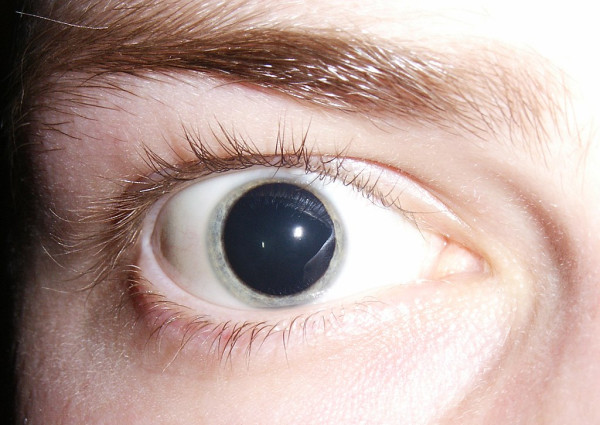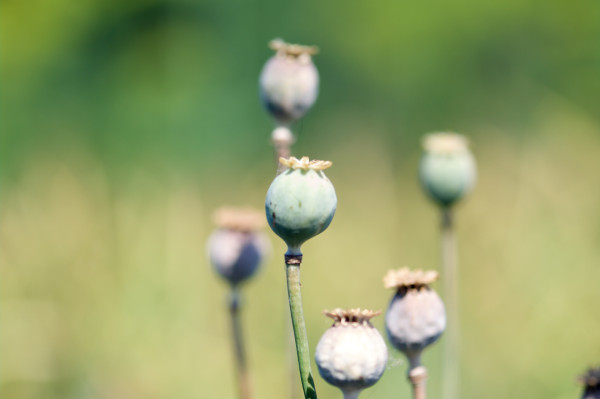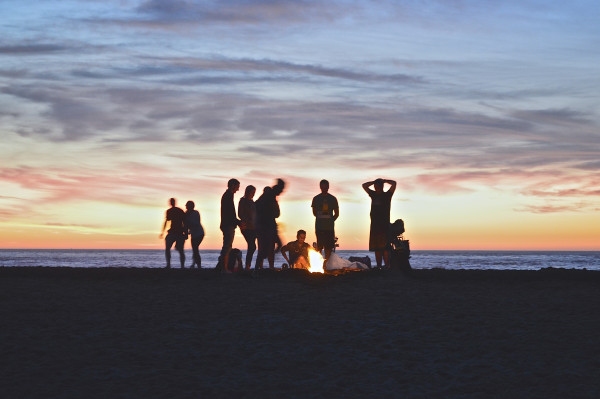Worldwide, the 31st of August is Overdose Awareness Day. It's an opportunity to remember those who have died, acknowledge the grief that overdose causes and to discuss ways we can end to overdose deaths.
It's also a good opportunity to talk and learn about what overdose can look and feel like, and what to do if you or someone you know is experiencing an overdose – no matter what you're taking. Read on for overdose symptoms of some common drugs, plus what you can do to avoid ending up in an overdose situation.

Alcohol
You might be most familiar with what overdoses on this drug look like. Alcohol is a depressant, meaning it can slow down your body and your thoughts.
If you’re overdosing on alcohol, you might:
- Have blurred vision
- Feel uncoordinated or fall over
- Have nausea or vomiting
- Slur your speech
- Have mood swings and intense emotions, including becoming violent
- Be confused or have memory loss
- Get heart attack symptoms – like chest pain or numbness in limbs
Other people might notice you:
- Are unresponsive
- Choke on your own vomit
- Have pale, bluish skin and lips
- Have a seizure
- Are not breathing
Alcohol poisoning can be very serious. If you or someone you're with is showing signs of alcohol poisoning, call 111 immediately.
There’s a temptation to leave friends who are experiencing alcohol poisoning to ‘sleep it off’. Not to sound too intense, but alcohol poisoning can kill you. If someone isn’t responsive, call 111. If they are responsive but drowsy, put them onto their side in the recovery position and check on them frequently to ensure that they’re still breathing, responsive and not at risk of choking on their own vomit.
GHB and related drugs GBL and 1,4-BD have overdose symptoms similar to alcohol. Read more about this here.
 Photo by Raziel, CC-BY-3.0
Photo by Raziel, CC-BY-3.0
Stimulants
Stimulant overdoses can happen when you take too much of a drug that makes you feel more alert or awake. That includes a range of drugs, like MDMA, speed, meth, cocaine, cathinones, BZP and even caffeine.*
If you're overdosing on stimulants, you might:
- Feel anxious or jittery
- Be irritable or aggressive
- Feel sweaty or fevery
- Have a pounding heart
- Have muscle tension, such as a tight jaw
- Experience sudden weakness, numbness, or paralysis on one side or loss of vision
- Have chest pain
- Have difficulty breathing
Other people might notice that you:
- Have restless movements
- Are grinding your teeth, or have other muscle tension
- Are confused or disoriented
- Act violently or dangerously
- Have seizures
- Lose consciousness or become unresponsive
If you or someone you're with is showing concerning overdose symptoms, such as chest pain, losing consciousness or acting in a way that could hurt someone, call 111 immediately.
*Yes, really! If you take too much caffeine you might experience vomiting, trouble breathing, hallucinations or an irregular heartbeat, to name a few.

Opioids
The term ‘opioids’ refers to both chemicals made in a lab (like morphine and oxycodone) as well as naturally-derived opioids like heroin or poppy seed tea. There's been a huge increase in opioid overdoses worldwide, particularly in North America. Opioids are the most commonly injected drug in New Zealand – injecting carries a greater risk of overdose as the drugs directly enter your bloodstream, and none is filtered out by your digestive processes.
If you’re overdosing on opioids, you might:
- Feel nauseous or have vomiting
- Feel itchy
- Feel tired or have trouble staying awake
- Lose your libido, have difficulty orgasming or maintaining an erection
- Feel disoriented or confused
- Have difficulty breathing, or a slower heartrate than normal
Other people might notice you:
- Have tiny ‘pinpoint’ pupils
- Choke on or are at risk of choking on your own vomit
- Are very disoriented or confused
- Have seizures
- Lose consciousness
Opioid overdoses are a life-threatening emergency and you need to act quickly. If you or someone you're with is showing concerning overdose symptoms, such as losing consciousness or being unresponsive, call 111 immediately. Give that person naloxone if you have it – it’s a drug that quickly reverses the effects of opioid overdose. Find out how to use nasal spray naloxone (Nyxoid) here and injectable naloxone here.
If you’re using opioids regularly, it’s a good idea to have some naloxone on hand, and to show your friends and whānau how to use it on you.
Benzos
Benzodiazepines, like Xanax or Valium, are usually prescribed to help with sleeping, anxiety or muscle spasms. People take benzos recreationally, and these may have originally come from a pharmacy, or they could be bought on the black market. If you’re buying benzos on the black market, be aware that these may not contain the benzodiazepine you think they contain, or they could include other ingredients.
If you’re overdosing on benzos, you might:
- Feel dizzy or uncoordinated, or you may not be able to control your movements
- Feel disoriented, low, agitated, anxious, paranoid or suicidal
- Dissociate
- See double
- Have an irregular heartbeat
- Make risky decisions
- Have tremors
- Have chest pains
- Have breathing problems
Other people might notice you:
- Are experiencing psychosis
- Have a seizure
- Lose consciousness
If you or someone you're with is showing concerning overdose symptoms, such as losing consciousness or being in extreme mental distress, call 111 immediately.
It’s worth noting that you can become dependent on benzos if you’re taking them regularly, even at small doses. Get support if going through withdrawal. It can be dangerous to stop taking benzos suddenly. Talk to a doctor or a drug helpline for more info on cutting down.
Ketamine
Ketamine is a psychedelic and a depressant, meaning it can slow down your body and thoughts. It’s also commonly referred to as a dissociative, because it can make you feel separated from your body and mind.
If you take a large amount of ket, it can put you in a k-hole, where you might not be able to move or speak. Some people are into this, and we’re not here to judge. But there are a few things to know to stay safer, as k-holes can be distressing for some people.
If you’re overdosing on ketamine, you might:
- Vomit
- Feel uncoordinated or hurt yourself
- Are unable to speak or move
- Have trouble breathing
- Have a very slow heartbeat
- Lose consciousness
- Experience distressing hallucinations or psychosis
- Have chest pain
Other people might notice you:
- Become unresponsive
- Have seizures
If you or someone you're with is showing concerning overdose symptoms, such as being in a k-hole for a long time or having very slowed breathing, call 111 immediately.

Preventing overdoses
There are a few key things you can do to decrease your chances of getting into an overdose situation.
-
Check your drugs.
Get your drugs checked at a free and legal drug checking clinic to find out what’s really in them. Different drugs have different dosages – if you know what you’re actually about to take then you have a better chance of getting the dosage right. -
Remember that dosages are different for everyone.
Just because your mate says 100mg of MDMA is a good amount, that might not be the case for you. We all have different body sizes, body compositions and metabolisms, which affect how quickly our bodies process different drugs. Measure your dose using scales if you have access to them. Websites like Tripsit have some good basic guidance on dosage, but remember to... -
Start low and go slow.
That means take a small dose to start with – especially if it’s a drug you haven’t taken before – and wait to see what the effects are before deciding to take more. Wait an hour or longer. -
Avoid mixing substances.
This increases the risk of overdose. Alcohol and medications (especially anti-depressants and anti-anxiety medication) can interact with the drugs you are using and can cause unpleasant or dangerous effects. -
Make an overdose plan.
If you are around other people, try not to have everyone using at once so at least one person can respond in an emergency. If you’re using any drug alone, tell a trusted person what you’re doing and have them check in with you via calls or texts. Make a plan with them for what to do if you’re not responding.
If you or someone you're with has less severe overdose symptoms such as anxiety or muscle tension, try:
- Focus on breathing - try taking slow, deep breaths.
- If you are able, call and talk to somebody you trust and ask them to help keep you calm.
- Do not take more stimulants, alcohol, or other drugs, as these can make you feel worse.
- Move to somewhere quiet - try to sit, lay down and do something relaxing.
- Drink water to stay hydrated.
Related stories
Recent stories
Potent opioid found in fake diazepam
Blue fake diazepam pills that actually contain a potent synthetic opioid called N-Desethyletonitazene are being sold in New Zealand.
Fill me in: Common drug fillers and binders
Drugs are often diluted or ‘cut’ with fillers, like lactose or sugar. We take a look at some of the most common fillers and what the risks are.
What we learnt from checking 2602 drugs last year
Nearly 1 in 5 drugs were different to what the person thought they had